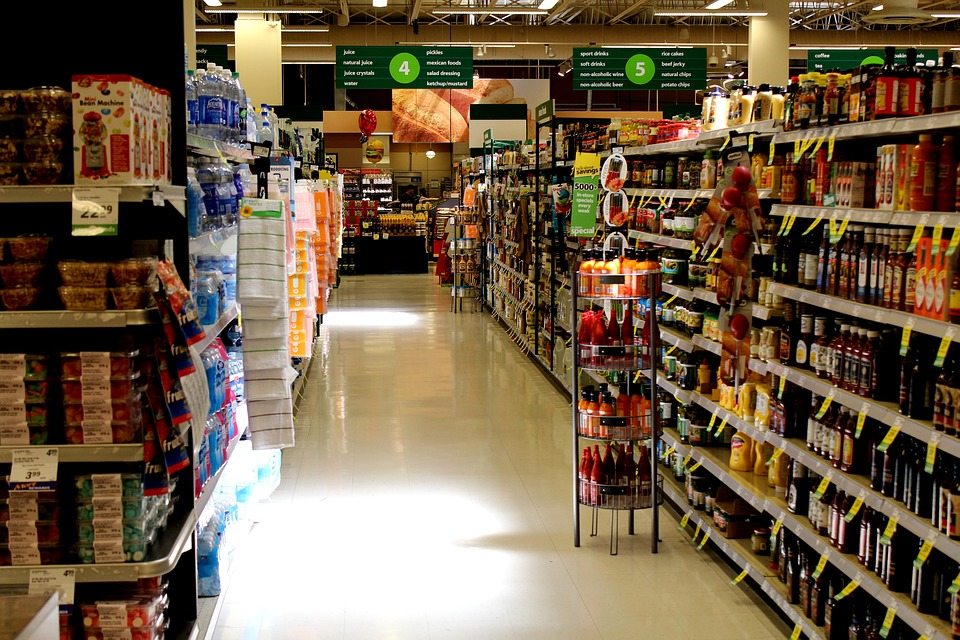
In 2014, Americans devoted 5.5 percent of their disposable income to purchasing groceries, according to the U.S. Department of Agriculture. While this may not seem like a lot of cash, it’s still thousands of dollars a year going to the purchase of food that you eat at home.
You can cut your costs substantially by making a few smart changes to the way you shop, and it’s definitely worth learning how to save money on food so you can put more of your money towards important goals and less towards buying the food you and your family eat. Here are 13 key ways that you can slash your grocery bill and save money on food.
My Favorite Ways to Save Money on Food
Here’s 13 ways to save money on food so your grocery bills will be a lot lower:
- Go shopping alone: When you shop with a partner, you spend almost 40% more, according to the Globe and Mail. Shopping with kids can also be really costly, as it can be hard to say no to incessant requests to put items into the cart. So one of the keys to saving money on food is flying solo at the grocery store (plus it’s a lot easier than shopping with kids).
- Check unit prices: Many people assume the largest item is the cheapest, but this isn’t always the case. Calculate unit prices by dividing the cost per the number of items you get and compare which products are truly the best deal.
- Always shop with a list: If you wander through the store and decide what to buy, you’re much more likely to overspend on impulse purchases. Make a list and move purposefully through the store, committing to yourself not to pick up items that aren’t on that list.
- Don’t shop at eye level: Stores put the most expensive stuff at your eye level where you are more likely to see it and grab it. Look at upper and lower shelves to find cheaper versions of the same products that are usually just as good.
- Minimize your time in the middle of the store: The perimeter of most grocery stores has fresh produce and veggies, meats and dairy products. These are the basis of a healthy diet, and these staples also tend to cost less than more expensive prepared food items found in the middle of the store. Fill up your cart with this stuff instead of the junk food that costs you more and isn’t as good for you.
- Plan your purchases around what’s on sale: You can plan a great weekly menu by looking at the grocery store flyers to see what has been discounted. Simply changing the way you plan your meals could slash your bill dramatically as you buy lower cost meat, veggies, and snacks each week.
- Buy enough to last until the next sale: When grocery stores put items on sale, they do so on a regular schedule. There’s usually around six to eight weeks in between sales, but you can watch store flyers to learn the schedule of the store where you shop. When the store discounts an item, buy enough to last until the next sale so you never have to pay full price.
- Switch to generics: Generic food products often taste exactly the same as their more expensive counterparts, but they are a fraction of the cost.
- Use coupons: Using coupons can slash your grocery bill. Cut coupons from the Sunday paper, or buy coupons that someone else has cut for you from sites like Coupon Cabin. You can also print out coupons and use those to lower the costs of your grocery store purchases.
- Sign up for store loyalty cards: You’ll often get good discounts from stores if you shop with a loyalty card, and you may be notified of sales that you can take advantage of.
- Go outside of the grocery store for food purchases: Warehouse clubs and even drug stores can sometimes have cheaper prices on every day items. Comparison shop to find the best deals in your area so you don’t overpay for items you buy regularly.
- Cook in bulk: It always costs a lot more to eat out or buy prepared foods at the grocery store than it does to eat home cooked meals. When you cook, make up a few extra portions to stick in your freezer. You can take these servings out on a day when you don’t feel like cooking instead of hitting the drive-thru or ordering a pizza. You can also grab a prepared meal from your freezer to take to work instead of buying lunch.
- Grow your own herbs: Buying fresh herbs is one of the most expensive things you can purchase at the grocery store. It takes just a few dollars to start an herb garden on a windowsill and you can save a fortune while having fresher ingredients.
By making these 13 simple changes to the way you shop, you can save money on food and use the extra cash to beef up your emergency fund or spend on something fun.
What are your best tips for saving money on food? Let us know by leaving a comment.

